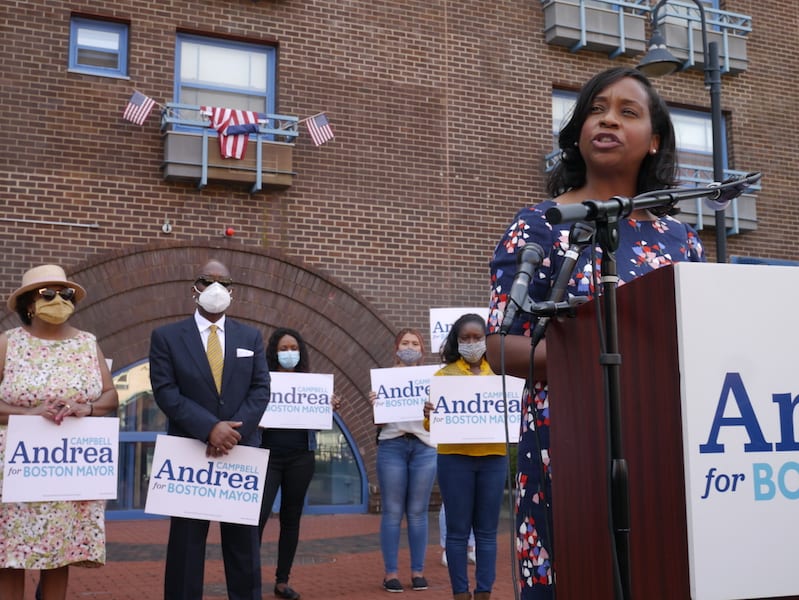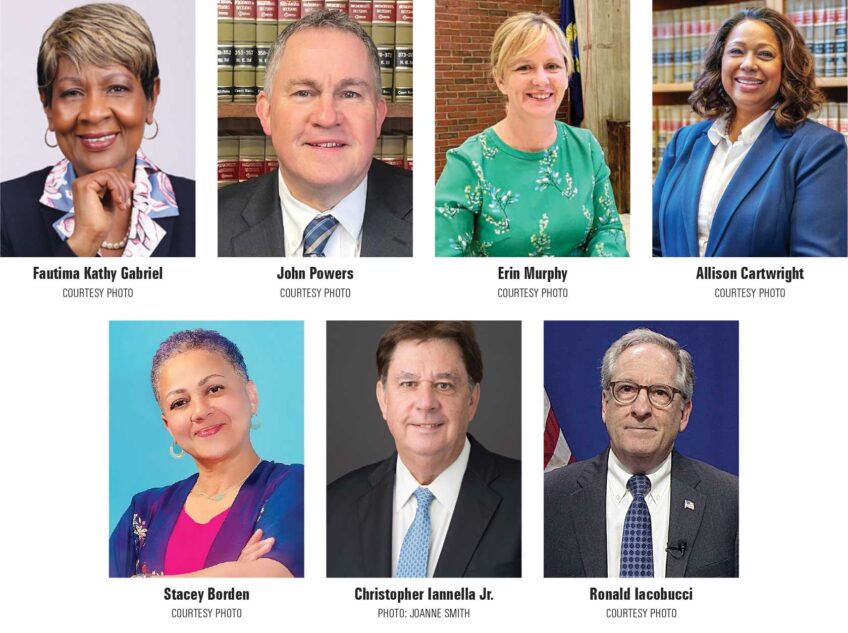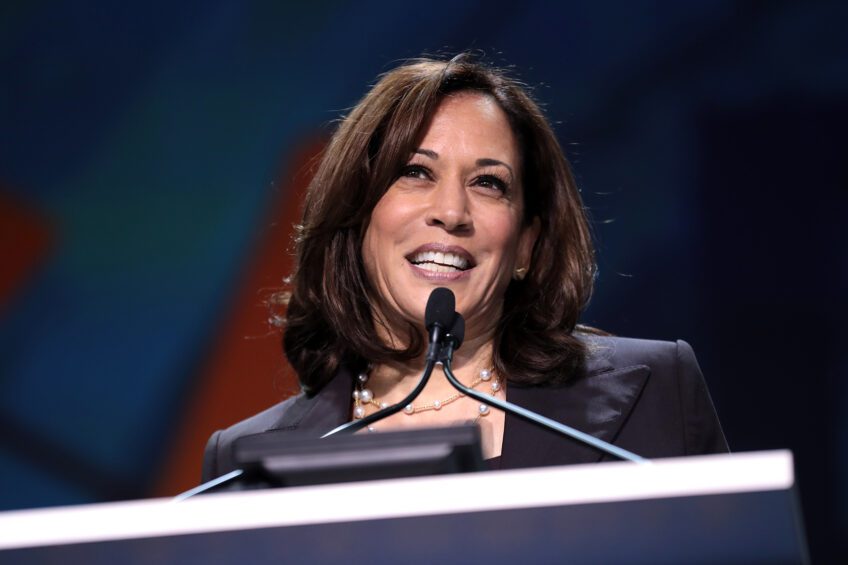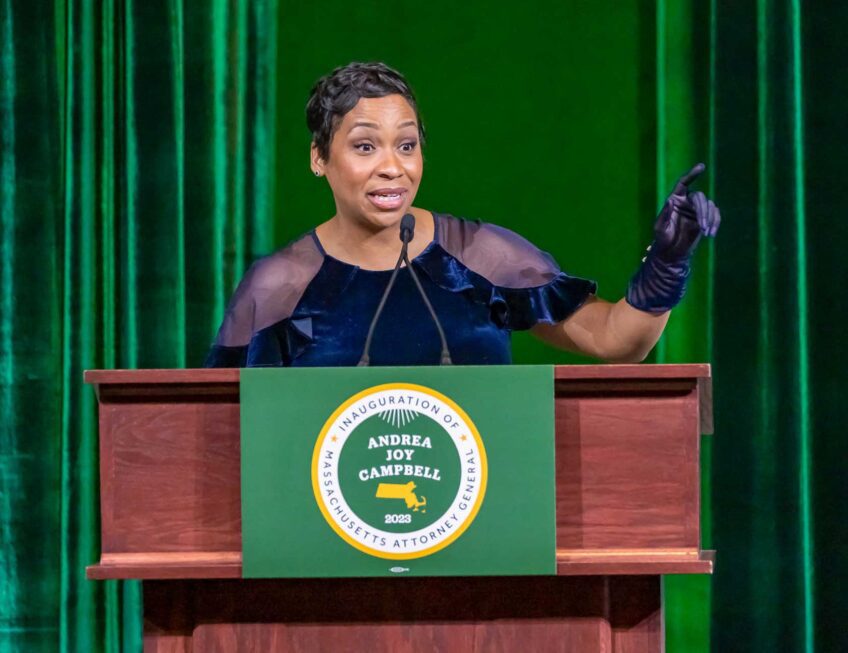
District 4 City Councilor Andrea Campbell announced her campaign for mayor last Thursday. She will run against at-large Councilor Michelle Wu, who announced her campaign on Sept.15, and Mayor Martin Walsh, if he announces a campaign.
Campbell’s announcement took place in front of a public housing building where she grew up with her grandmother. She said her life and those of the family members who raised her and with whom she grew up provide an example of the racial inequity in Boston.
“I know the pride and the pain of being from the city of Boston. But I also know what is possible in Boston,” Campbell said during her speech. “I stand here today as a girl who grew up in public housing in Roxbury and the South End, with a family torn apart by incarceration and loss, and to be elected the first Black woman to serve as the president of the Boston City Council, and today launch a campaign to be the first Black mayor and the first woman mayor of the city of Boston.”
Campbell said she will run her campaign with a focus on equity and will be rolling out policy platforms in line with her push on the council for police reform, racial justice, affordable housing and economic development.
Walsh has not announced a bid for a third term. In the last year, Campbell has opposed him on several issues, including this year’s city budget, which she voted against. Campbell and other councilors of color had called for cutting more funds from the Police Department budget and diverting those dollars to social services.
She has also led a push on the council for an independent civilian review board to investigate allegations of police misconduct.
“We’ve had reports over decades talking about diversifying the police department and creating a civilian review board,” she said today. “We’ve talked about it, but we’ve never gotten it done.”
During her speech, Campbell said she will push for more substantive changes to combat racial inequality in the city.
“Amidst an urgent call for change … I’ve also heard that here in Boston we’re different, that Boston is better than most places when it comes to police violence and racism,” she said. “But for many Bostonians, while we take pride in the history of this city being diverse, Boston has not delivered on its promise of being the best.”
She used the story of the loss of her twin brother Andre, who died in pre-trial detention at age 29, to highlight disparities in the city’s schools and in economic opportunities afforded the Boston’s residents. While the Boston public schools she attended gave her the tools to succeed and eventually study law at UCLA, both of her brothers cycled in and out of the criminal justice system.
“How do two twins born and raised in the city of Boston have such different outcomes?” she said.
Campbell also addressed the effects of COVID-19 on people of color and the other disparities that are exacerbated by the crisis.
“We need to, and we will, shift our approach to public safety to address violence as a public health crisis, and target root causes of violence and crime, which are often linked to poverty and trauma,” she said toward the end of her speech.
Other goals Campbell listed include more accountability in policing, a more transparent city government, equal opportunity for a quality public school education, and economic recovery after the pandemic.
“As mayor of the city of Boston, I will bring our city together to fight structural inequities and give everyone in all of our neighborhoods, all of our communities, a chance to succeed.”
Campbell’s and Wu’s entrance into the 2021 mayoral race comes early, as many local political operatives just ended their work on Democratic primary races. Both will likely need to raise considerable funds. While Walsh has $5.5 million in his campaign account, Wu reported a balance of $346,592 on the August 31 filing date with the Office of Campaign and Public Finance. Campbell reported $285,152.
Walsh has not yet publicly declared his intention to run for reelection next year.






